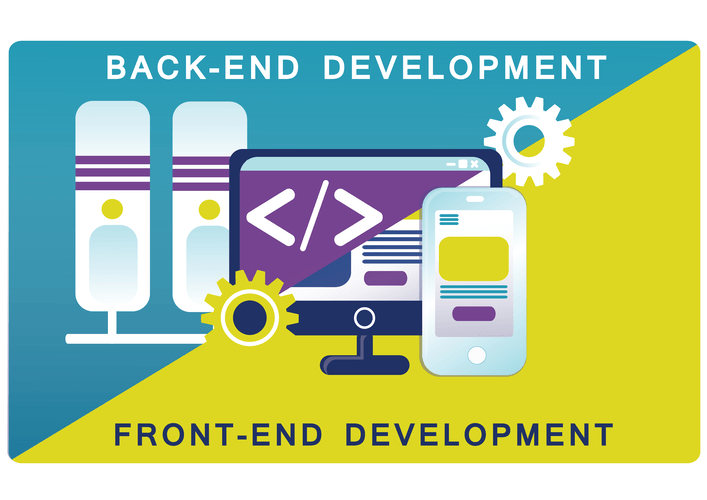This trust may be impressed by a business’s strong information safety measures, which make customers more likely to engage with digital advertising and personalised companies. Overall, digital belief plays a significant function in shaping consumer conduct, together with their willingness to share data and make on-line purchases. It’s essential to understand how implementing cybersecurity and information privateness insurance policies assist accomplish organizational goals, and to build an organization-wide strategy that helps meet them. Trust doesn’t come easy—companies should have a mindset of continuous improvement to reply to the evolving market and technological panorama. Nearly 60% of respondents reported fewer privacy breaches and cybersecurity incidents for digital trust leaders. McKinsey stories that they’re 1.5 times extra likely to mitigate information privacy issues and cybersecurity risks while experiencing 8% fewer information breaches in the final 3 years.
Organisations can benefit from frameworks just like the Digital Trust Ecosystem Framework (DTEF) developed by ISACA. Such frameworks provide a holistic view of digital belief, providing guidelines and standards for organizations to focus on in their trust-building efforts. While the framework itself is not a solution, it serves as a roadmap to reinforce digital trustworthiness. Lastly, and perhaps most importantly, is accountability—a actually integral a part of digital belief.

“To earn belief, we must pursue actions that deserve trust and make those actions visible to others,” said Giovacchini. When we’re making a belief determination, we are trying to determine if the person/process/organization that we’re going to put our faith in, do they have the power, the integrity and the benevolence to observe through to earn our trust. Equifax – In 2017, 145 million Americans’ private particulars had been lost as a outcome of a vulnerability within the company’s web site utility.
Is Your Most Valuable Information At Risk?
By demonstrating a commitment to digital belief, companies can establish themselves as reliable companions, strengthening the bond with prospects and rising repeat business. Companies and prospects additionally must really feel assured that their systems and knowledge are nicely protected, therefore the importance of cybersecurity. Organisations must proceed to prioritise cybersecurity measures and invest in robust privateness practices. Implementing sturdy encryption, multi-factor authentication, and often updating security systems are important steps to protect sensitive knowledge. Transparent privacy policies and consent mechanisms can enhance customer confidence and trust. They should invest in robust anomaly detection techniques that not only safeguard transactions, but additionally instill confidence in customers by actively addressing potential threats.
While there’s a recognition of the importance of trust, there is no universally accepted strategy to quantifying it. Existing strategies, corresponding to customer satisfaction surveys and retention charges, provide restricted insights. Developing standardised metrics and frameworks to assess and measure digital belief is essential to allow organisations to observe and enhance their trustworthiness. Now, let’s apply this framework to digital belief (the confidence, flexibility and empowerment within the relationships between individuals and organizations in relation to your data).
- Last week ISACA launched its convention Digital Trust World and as representative for Knowit I was there to study in regards to the latest trends within the area, and then deliver them to you.
- Data breaches proceed to be a big risk, exemplified by the recent MOVEit breach that uncovered the information of 4 million well being sufferers.
- The four pillars of digital belief are safety, transparency, reliability, and person expertise, and businesses should prioritize them to reinforce their digital status and construct long-term customer loyalty.
- Establishing guidelines for honest knowledge usage, algorithmic transparency, and ethical decision-making can improve digital belief and mitigate concerns associated to biases or misuse of data.
- These measures may embrace encryption, multi-factor authentication, and the adoption of advanced fraud prevention technologies—all geared toward safeguarding delicate data and digital belongings from malicious actors.
This know-how allows for the swift identification of bizarre patterns or behaviors that may signify a possible safety risk. Additionally, proactively blocking bots and strategically utilizing location knowledge can effectively thwart unauthorized access attempts, strengthening the overall security posture of an organization. By embracing these multifaceted cybersecurity measures, companies can proactively safeguard their digital assets and protect each their own and their customers’ delicate data in an increasingly interconnected world. First and foremost is safety, which involves safeguarding on-line information and transactions in opposition to unauthorized entry and potential cyber threats. Privacy is equally critical to guard individuals’ rights to regulate their private data and make certain that it’s used solely with a person’s full consent. Although an essential mannequin to keep up digital belief, knowledge trusts include challenges.
Eroding Digital Trust Has A Broad Social Impression
In support of this mission, I will be publishing a collection of articles exploring ideas of digital belief, classes from evolving data and expertise impacts, and strategies for responsible innovation and cybersecurity management. Each article will examine issues relevant to organizations throughout industries, recognizing that corporations vary in their levels of maturity, readiness, and capabilities. In today’s climate of fixed connectivity and data-driven transformation, advancing Digital Trust and ensuring a protected, responsible approach to technology has never been extra important. As companies race to maintain pace with innovation, security and person wellbeing cannot be left behind.
As extra of our on a regular basis lives transfer online, from shopping to banking, engaging with firms that offer secure, trusted experiences is one thing each web consumer deserves, and expects. For firms, this means establishing insurance policies and practices that provide a protected surroundings for on-line interactions, which shield their customers and establish trust and loyalty for both present and potential clients. Our interviews suggest that digital belief is enhanced by knowledge trusts as a outcome of organisations can gain larger confidence in that information and the insights generated from it. Our analysis found some vulnerabilities associated to AI’s applicability for certain use circumstances.
What’s Digital Trust, Why Is It Important?
Companies present privateness insurance policies, nonetheless, we ourselves have to be cautious of the data we share on-line, defend your information by utilizing strong passwords, and hook up with credible websites amongst other precautions. This will not be the final word answer however it does assist to offer some type of safety. The confidence placed in the integrity of relationships, interactions, and transactions inside a digital ecosystem. Enterprise companies can’t achieve lasting digital belief with out investment—in new methods, new technologies, and new roles inside their companies.
57% of respondents record more reliable knowledge for decision-making as a advantage of high levels of digital trust. A good cybersecurity and information privacy posture helps ensure information high quality and integrity by stopping alteration or loss of the data. Beyond mitigating information privateness issues, digital belief leaders are additionally 2.1 times more more probably to mitigate data retention dangers. Having trustworthy data permits companies to use their data correctly to make knowledgeable selections in response to their current state, the market and present or anticipated considerations. However you slice it, digital trust is about good technological stewardship that protects customer knowledge.
Establishing digital belief requires a cultural and behavioural shift within organisations. It entails fostering a culture of trust from top to bottom, prioritising ethical conduct, and aligning digital practices with the values of trustworthiness and integrity. Organisations should invest in coaching, education, and awareness packages to develop a digital belief mindset throughout their workforce.
What Security Is Proved By The Info Host?
Finally, social media platforms have become breeding grounds for scams, with the UK reporting that social media scams now outnumber conventional crimes by way of sufferer depend. These incidents collectively paint a deeply concerning picture of a digital panorama tainted by deception, fraud, and an alarming breach of trust digital trust solutions. Communicate transparently with customers about how their data is being managed, who is managing it, and the way it is getting used. Engage customers in the process and watch out in choosing third-party operators for data trusts.
Initiatives like industry-wide belief certifications can provide a standardised way to consider and compare trustworthiness. Use AI algorithms to validate knowledge accuracy, authenticity, and reliability in real-time, whereas detecting missing or surprising knowledge. ISACA anonymously surveyed round 50,000 people who are both members of ISACA or have earned considered https://www.globalcloudteam.com/ one of their certifications or credentials. These are what they reported as the biggest benefits of high levels of digital belief. Our location-based advertising resolution can set up a strong groundwork via an indication.
Paramount throughout this quickly rising field is fostering communities of practice and schooling that prioritize ethics and particular person agency. Deloitte refers to a quantity of of Deloitte Touche Tohmatsu Limited (“DTTL”), its world network of member firms, and their associated entities (collectively, the “Deloitte organization”). DTTL (also referred to as “Deloitte Global”) and every of its member firms and associated entities are legally separate and independent entities, which can not obligate or bind each other in respect of third events. DTTL and every DTTL member agency and associated entity is liable only for its personal acts and omissions, and not these of each other.

I hope to catalyze dialogue on creating common frameworks to strengthen belief, experiences, and empower businesses to thrive securely. Topics could embody information safety best practices; insights on constructing enterprise resilience; optimizing data utilization responsibly; and shaping culture for safe digital transformation. Enterprise companies are responsible for swaths of non-public information shared with them by their staff, partners, and clients. Failures as stewards of that data typically create a feeling of mistrust and suspicion that makes it tough for any enterprise firm to operate properly.
The outcomes of the info breach for the above companies and some others who have suffered the identical fate have been a lack of prospects, lack of income, harm to the organization’s popularity, injury to belongings and monetary penalties. While contemplating these factors, what’s the certainty that these practices make sure that data is secure? Let’s take a look at examples of a breach in digital belief, and the consequences of a breach of digital trust.

